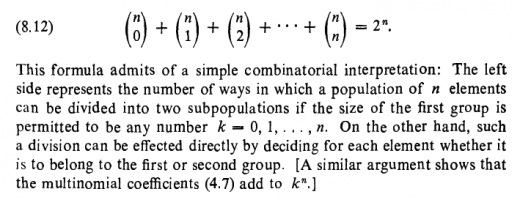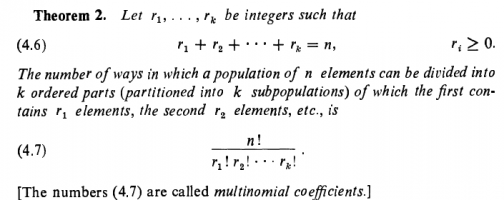Win_odd Dhamnekar
Junior Member
- Joined
- Aug 14, 2018
- Messages
- 212
We know that \(\displaystyle \binom{n}{0} + \binom{n}{1} + \binom {n}{2} + ... + \binom {n}{n}= 2^n \rightarrow (1)\)
Now, if I want to have R.H.S of (1) as 3n, how should I adjust L. H. S. of (1)?
Now, if I want to have R.H.S of (1) as 3n, how should I adjust L. H. S. of (1)?


